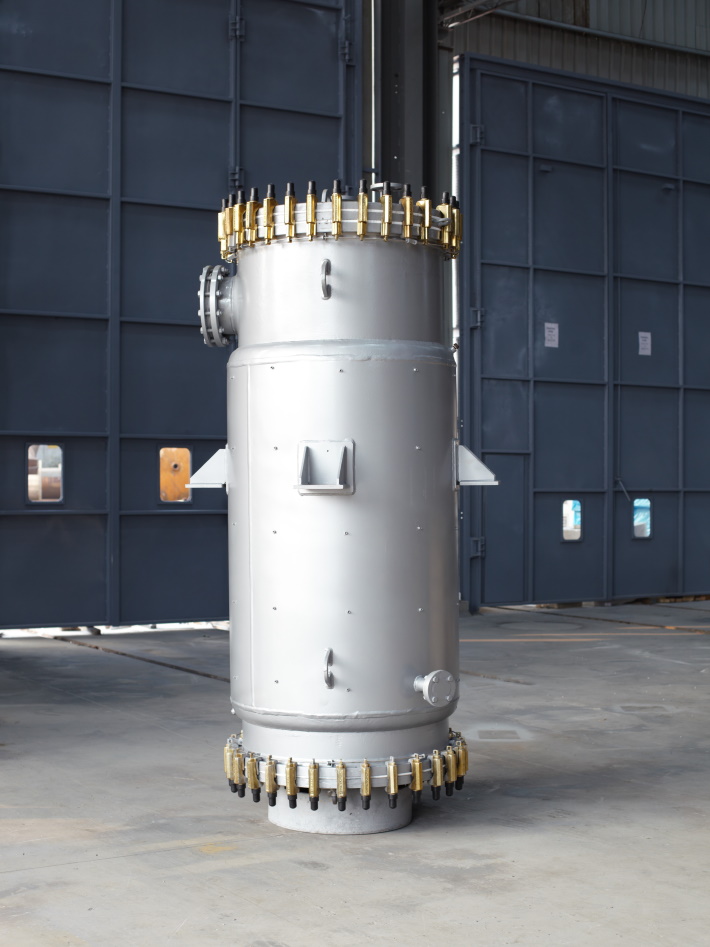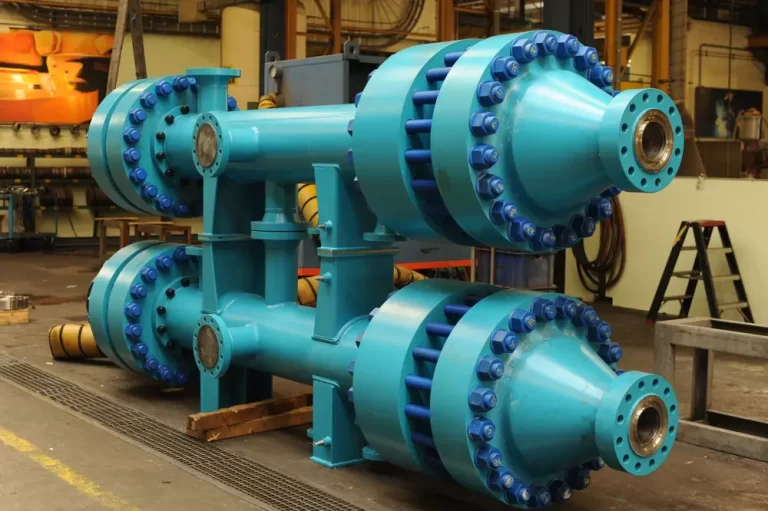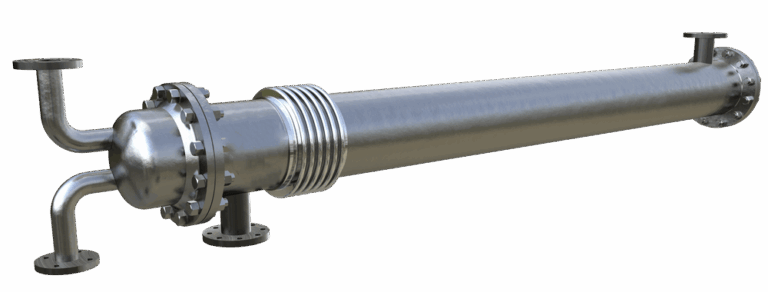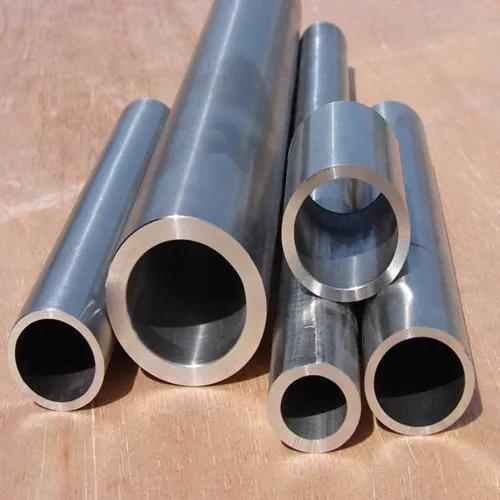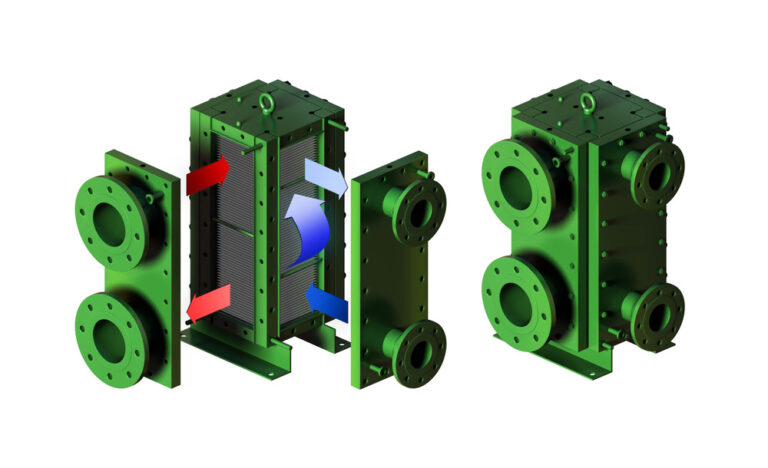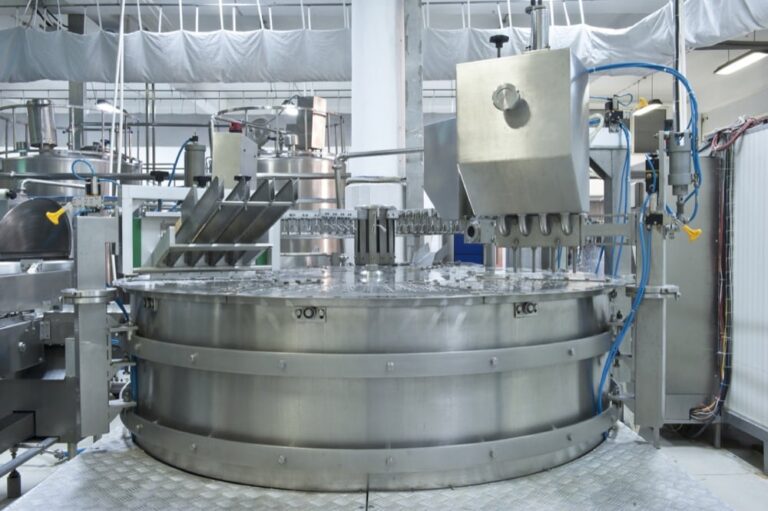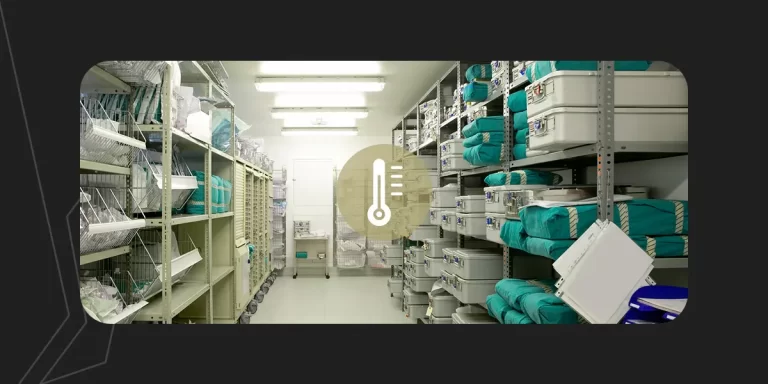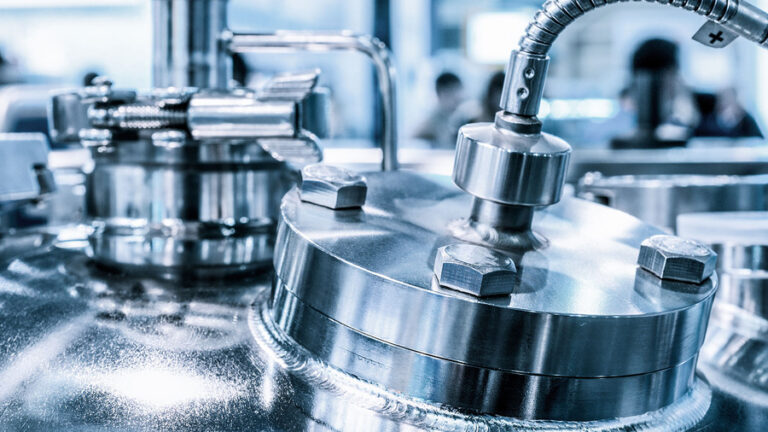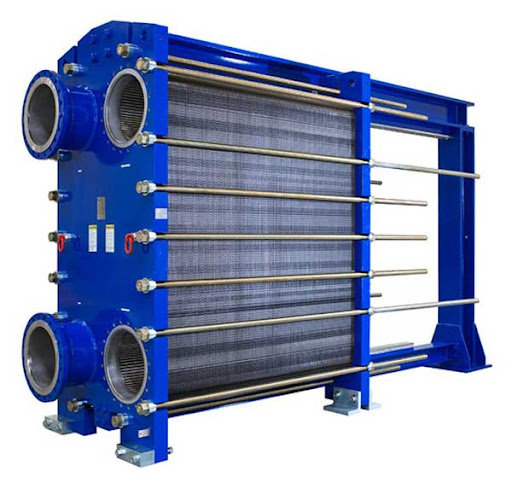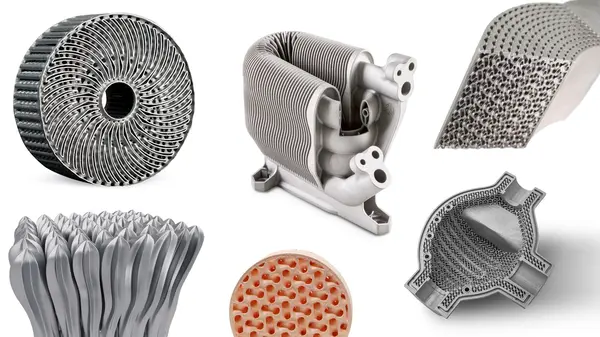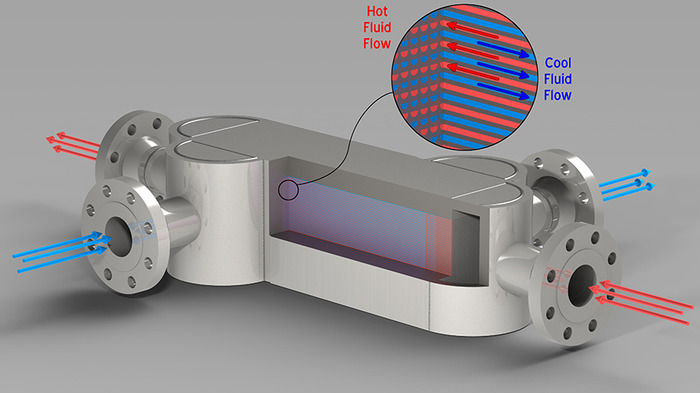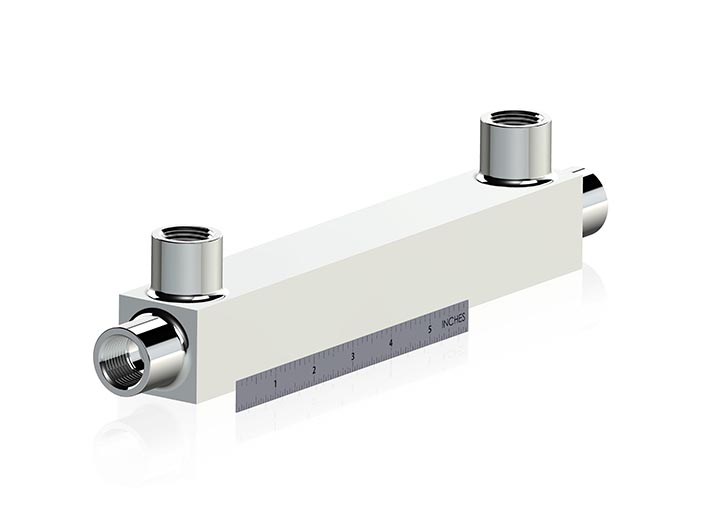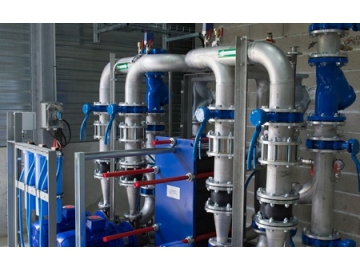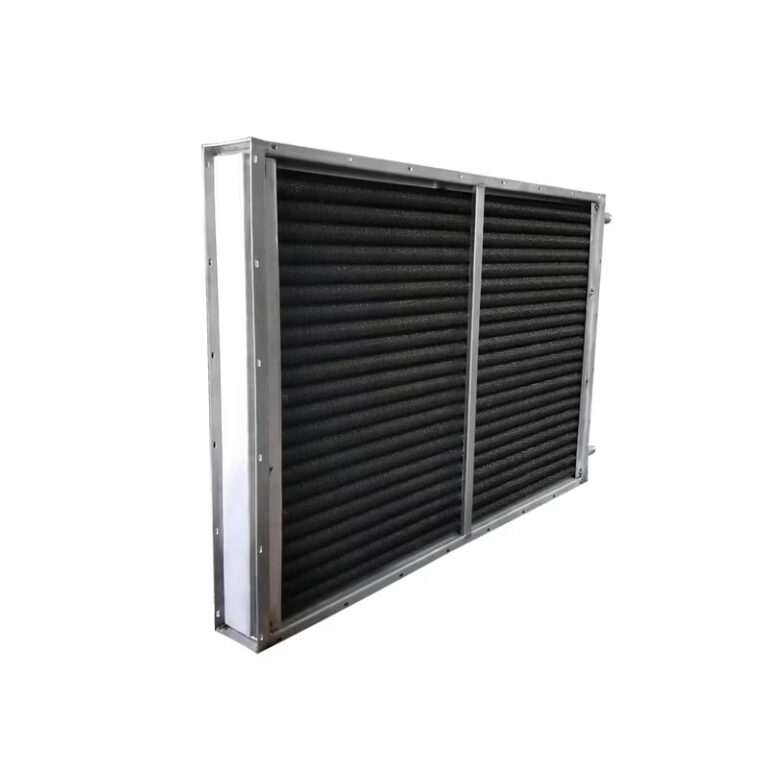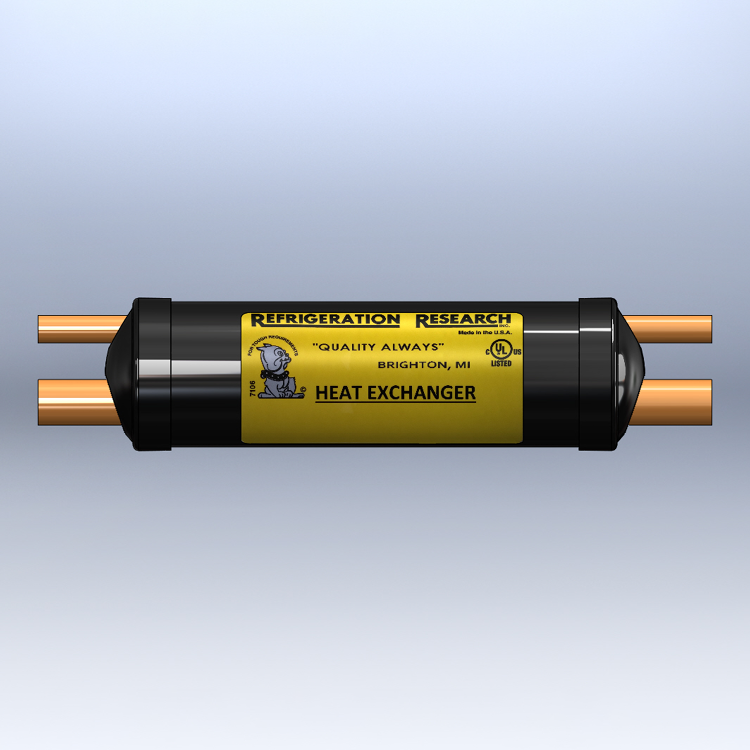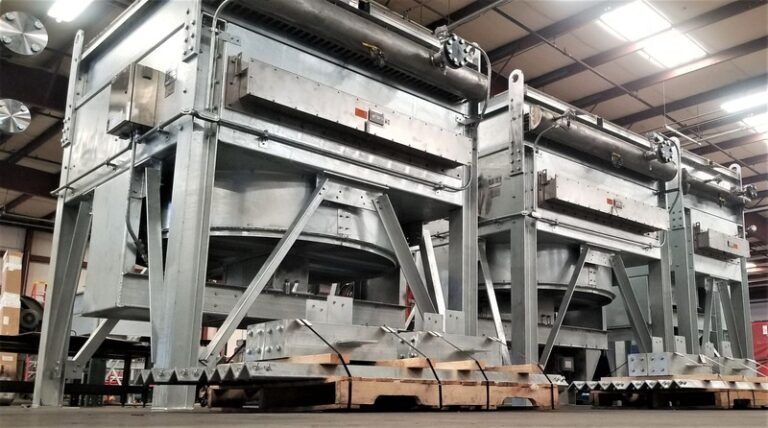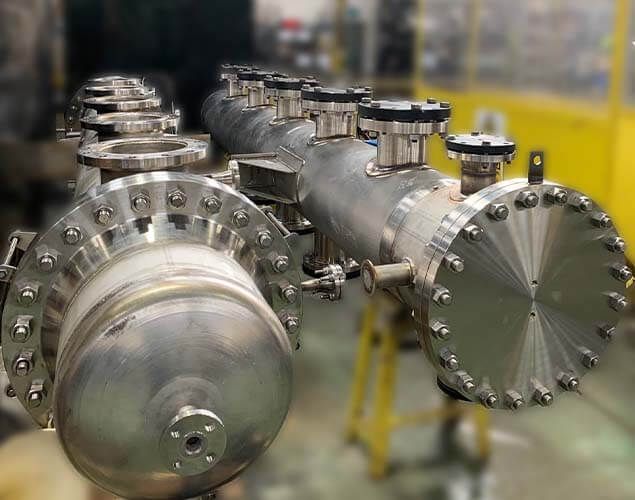Introduction Glass lined heat exchangers are most commonly used in the chemical, pharmaceutical, agrochemical, and food processing sectors. Their glass coating, typically made from borosilicate or enamel glass, resists attack from acids, alkalis,…
Well Testing Heat Exchangers
Introduction Heat exchangers are critical components in many industrial processes, responsible for transferring heat efficiently between two or more fluids without mixing them. Their performance directly impacts energy efficiency, operational safety, and process…
Multi-pass Industrial Heat Exchanger
Introduction In various industries where heating and cooling processes are essential, heat exchangers play a vital role in transferring heat between two fluids without mixing them. Among different types, the multi-pass industrial heat…
Alloy Tubes for Condensers
Introduction Condenser tubes are essential components in heat exchange systems, playing a crucial role in the transfer of heat between two fluids, typically in industrial refrigeration, HVAC, chemical processing, and marine applications. These…
Welded Plate Heat Exchanger
Introduction Welded Plate Heat Exchangers represent one of the most advanced heat exchange technologies available today, designed to provide highly efficient thermal transfer solutions for a wide range of industrial applications. Unlike gasketed…
Silver Galvanized Heat Exchanger
Introduction Silver galvanized heat exchanger is a heat exchange unit whose outer surfaces or structural elements are protected with galvanized zinc coatings, and in some specialized versions, silver coating or plating may also…
Food and Beverage: Cooling processes in food production and beverage manufacturing.
Introduction In the food and beverage industry, cooling processes are essential for preserving freshness, ensuring food safety, and maintaining product quality. From raw ingredient storage to final packaging, temperature control plays a crucial…
Pharmaceuticals: Ensuring temperature stability in manufacturing and storage.
Introduction Temperature stability plays a vital role in the pharmaceutical industry, ensuring that medicines, vaccines, and biological products remain safe, effective, and stable from manufacturing to patient use. Pharmaceuticals are composed of sensitive…
Chemical Processing maintaining Precise Temperatures
Introduction Temperature control plays a vital role in chemical processing, ensuring that reactions occur under optimal conditions. Chemical reactions are highly sensitive to temperature variations, and even small deviations can lead to undesirable…
Refrigeration Cycle Chillers
Introduction Refrigeration Cycle Chillers is a fundamental cooling process widely used in commercial buildings, industrial plants, medical facilities, and data centers to regulate temperatures efficiently. Chillers operate based on thermodynamic principles, utilizing a…
Plate and Frame Heat Exchanger
Introduction Plate and Frame Heat Exchanger (PHE) is an advanced and highly efficient heat transfer device designed to facilitate heat exchange between two fluids without direct contact. It consists of multiple thin, corrugated…
Sanitary Plate Heat Exchanger
Introduction Sanitary Plate Heat Exchanger play a crucial role in temperature regulation and heat transfer. These heat exchangers are specifically designed for industries such as food processing, dairy, beverage, pharmaceuticals, and biotechnology, where…
Hybrid Cooling Towers vs Traditional Cooling Towers
Introduction Cooling towers are an essential component of industrial and commercial cooling systems, used to dissipate excess heat generated in power plants, HVAC systems, manufacturing facilities, and chemical processing industries. Traditionally, cooling towers…
Chiller Capacity Control
Introduction Chiller Capacity Control are vital components in various industrial, commercial, and residential cooling applications, ensuring precise temperature control and efficient heat dissipation. However, cooling demands fluctuate throughout the day due to changes…
Advanced Polymer Fill Media
Introduction Advanced polymer fill media has emerged as a superior alternative due to its enhanced thermal performance, higher resistance to fouling and scaling, increased durability, and better environmental sustainability. These materials are engineered…
Custom Heat Exchanger Design
Introduction Custom heat exchangers design are designed and manufactured. Traditional methods, such as brazing, welding, and casting, have limitations in terms of complexity, efficiency, and customization. AM overcomes these challenges by enabling the…
Hydrogen Fuel Cell Cooling
Introduction Hydrogen Fuel Cells Cooling have emerged as a promising alternative to traditional fossil fuel-based power systems. These fuel cells generate electricity through an electrochemical reaction between hydrogen and oxygen, producing only water…
Miniature Heat Exchangers
Introduction Miniature heat exchangers are cutting-edge thermal management devices specifically engineered to provide efficient heat transfer in compact spaces. Unlike traditional heat exchangers, which are often large and require significant space for installation,…
Self-Regulating Heat Exchanger
Introduction Self-regulating heat exchanger is an advanced thermal management system designed to dynamically adjust heat transfer rates based on fluctuating operating conditions. Unlike traditional heat exchangers, which require manual adjustments or external control…
Hybrid Thermal Management
Introduction Hybrid Thermal Management is an advanced approach to thermal control that combines multiple cooling methods to handle the varying heat dissipation requirements of modern, high-performance systems. As technologies become more complex and…
Compact Modular Exchangers
Introduction Compact modular exchangers have emerged as a game-changing solution. These exchangers are specifically designed to provide high thermal efficiency in a compact, modular structure, allowing businesses to optimize their processes without compromising…
Triple-Pass Heat Exchangers
Introduction Triple-pass heat exchangers represent an advanced thermal management solution designed to significantly enhance heat transfer efficiency. Unlike traditional heat exchangers, which have a single or double pass for fluid flow, triple-pass heat…
Heat Exchangers for Refrigeration
Introduction Heat exchangers for refrigeration systems, playing a pivotal role in transferring heat between fluids to maintain the desired temperature. Whether it's a commercial refrigeration unit, industrial cooling system, or a cold chain…
Heat Exchangers Renewable Energy
Introduction Heat exchangers renewable energy systems are devices transfer heat between fluids, ensuring that thermal energy is used effectively in technologies that harness renewable resources such as solar, wind, biomass, hydropower, and geothermal…
High-temperature heat exchangers
Introduction High-temperature heat exchangers are critical components in various industrial processes where heat needs to be transferred between fluids at elevated temperatures. These systems are designed to operate in extreme conditions, handling both…
Fin Fan Heat Exchangers
Introduction Fin Fan Heat Exchangers represent a highly efficient and versatile cooling solution used in various industries, including power plants, refineries, HVAC systems, and compressor cooling. These exchangers utilize a combination of fins…

